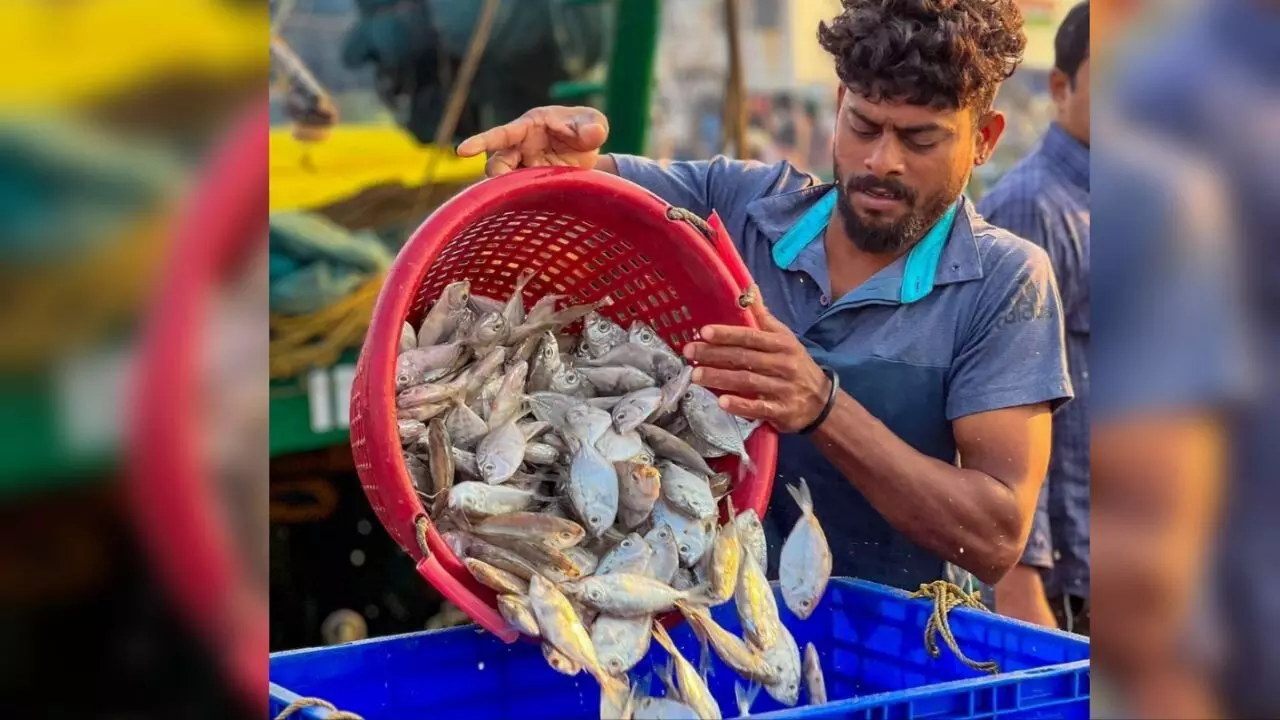ICAR-CIFT's two new technologies to aid sustainable fishing in AP
Technology-cum-machinery line for developing feed from fish waste: Fish processing creates nearly 60% of waste material and disposal of this huge biomass is of great concern in fish markets.
By Newsmeter Network
Hyderabad: Two latest technological innovations from the ICAR-Central Institute of Fisheries Technology (ICAR-CIFT), including V-form double-slotted otter boards and technology-cum-machinery line for developing feed from fish waste, were handed over to the beneficiaries of Andhra Pradesh recently at Visakhapatnam. Dr. George Ninan, director of ICAR-CIFT, Kochi, Kerala handed over the Memorandum of Understanding of the technologies.
ICAR-CIFT is a pioneer research and development institute in India, carrying out technological research and sustainable developmental activities in the harvest and post-harvest fisheries sector.
Dr. Ninan emphasized the role of ICAR-CIFT in developing these technologies for sustainable fishing and fish processing. He stressed that emphasis should be given to developing relevant technologies for improving the entire fish value chain for the benefit of the stakeholders and society.
What's the technology about?
V-form double-slotted otter boards: Experimental trawling using V-form double-slotted otter boards has proven that for a typical single-day trawler operating for seven to eight hours per day, the fuel saving can be between 17.5-24 liters. In the long run, this technology can help to reduce the burden of ever-increasing fuel prices. The hydrodynamic drag created by otter boards is a major factor contributing to high fuel consumption in trawl fishing. The most commonly used otter boards in Indian waters are rectangular and V-shaped. Modifications such as the installation of slots in otter boards greatly reduce the resistance given by otter boards while dragging in the water. Through a series of trials, ICAR-CIFT has optimized the V-form double-slotted otter boards for use in India's small-scale trawl fisheries. The technology was developed by a team of scientists from CIFT, Kochi led by principal scientist M.P Remesan.
Technology-cum-machinery line for developing feed from fish waste: Fish processing creates nearly 60% of waste material and disposal of this huge biomass is of great concern in fish markets. Fish vending markets and outlets generate a considerable quantity of discards rich in high-quality protein, fat, minerals, and other vital micronutrients. Conversion of fish discards into feed for aquaculture and poultry is a necessary option for utilizing unsorted waste from fish markets.
To address the problems of handling fish-cutting discards comprising head, bones, skins and visceral mass, ICAR-CIFT has standardized a simplified process for the direct conversion of fish market discards into high-quality floating/sinking fish feed. For pilot production, a customized machinery line comprising of shredder, pulverizer, blender, extruder, and drier was designed by ICAR-CIFT, Kochi. The technology is already popularized by the government of Kerala in the wholesale market.
Dr. U. Sreedhar, scientist-in-charge, Visakhapatnam Research Centre of ICAR-CIFT; Dr. S.S Raju, scientist-in-charge, Visakhapatnam Regional Centre of ICAR-CMFRI; Dr. R. Raghu Prakash, principal scientists of ICAR-CIFT